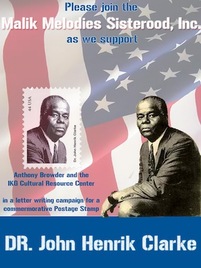The question is simple, who decides which one of these is newsworthy? Who's pulling the strings and telling us which ones to be outraged about? Why aren't all of these receiving national attention? The media frenzy around Michael Brown has not been this fervent since the death of Trayvon Martin. Is there something we can learn from this? Maybe it has to do with age. Garner was a 43-year-old father of six, Crawford was a 22-year-old father of two, Ford was 25 years old, and Parker was 36 years old. Did they not meet the criteria for garnering a public outcry? Maybe it has to do with location. It has been well documented that although Ferguson's population is predominantly African American, their police force is predominantly white. Is it possible that this statistic lends itself to great copy.  As I look back at 2013, the posts I've written in the Marketplace, the articles we've shared on our Facebook page, and our Twitter messages, I've come to appreciate the power of social media. I am convinced now more than ever that our vision of leveraging social media to effect change is one worthy of continuing, one we must push forward. We did not deviate from our goal of focusing on major issues such as voting rights, education, and criminal justice reform. We maintained our belief that as a society we need to be more socially aware but more importantly socially responsible. Rest assured, we will continue in this vein in 2014. My wish for 2014 is for us to spend more time focusing on the little things, the things that often go unnoticed and unrecognized. I wish we take a moment to read to a child. Reading opens a child's mind to the world. It can create a quest for knowledge. The old adage that reading is fundamental is still relevant. Does your local library have a reading club? Is there a book store nearby that has a children's corner. A child's mind is like a blank canvas, let's take some time to help them paint a beautiful picture. Let's take it one step further and buy a book for a child.  Click for a larger image Click for a larger image At some point in our lives we’ll reflect on and reminisce about the good old days. We'll talk about how we had simpler life. We’ll say “I’m glad I’m not a young person today, there are so many hurdles they have to navigate. We did not have to deal with gun violence, student debt, high unemployment, failing schools, and a myriad of other issues that our youth are facing today”. We’ll tend to forget that there were challenges when we grew up also. It’s human nature to look at the past and remember the good things; it’s a personal form of revisionist history. Although we’ll look at our past with nostalgic reverence most of us will acknowledge it for what it is. The past is the past. It is dead and buried. We should remember it, pay homage to it, and use it to build our future by continuing to move forward. Unfortunately there is a rising segment of the population in our country that literally wants to go back to the good old days. They want to go back to “traditional American values”. The simpler life for them was also a time of dominance and power. This movement is happening in plain sight and we are unwilling participants watching it happen. Many of the landmark judicial and legislative decisions that happened in the last 50 years are being challenged, manipulated, and in some cases overturned. Let's take a look at a few examples. A friend of mine shared an article from Yahoo News entitled "Report says poor are moving to nation's suburbs". Published by the Associated Press in Los Angeles, the article submits that:
Maybe the "poor" are moving to the suburbs because they can't afford to live in the cities any more. Maybe those folks that moved out of urban areas to "get away" from the city realized that's it's too expensive and inconvenient to live in the suburbs. Maybe commuting costs, traffic, property taxes, and such are impacting the lifestyle they were expecting to have.
So if you raise real estate prices in urban areas and lower them in suburban areas under the guise of affordable housing you get "gentrification". Wikipedia defines gentrification as:
Beginning in 1940 with a ten-cent stamp honoring Booker T. Washington, the United States Post Office Department began issuing stamps to commemorate the contributions of African Americans. Based on their Historian's report dated February 2011, the Post Office has issued 138 commemorative stamps.
Why is this campaign important? |
EditorErnest R. Heyward is the Founder and President of the Marketplace for Social Awareness and Social Responsibility Inc. Categories
All
Archives
June 2020
|
MARKETPLACE FOR SOCIAL AWARENESS AND SOCIAL RESPONSIBILITY INC.





